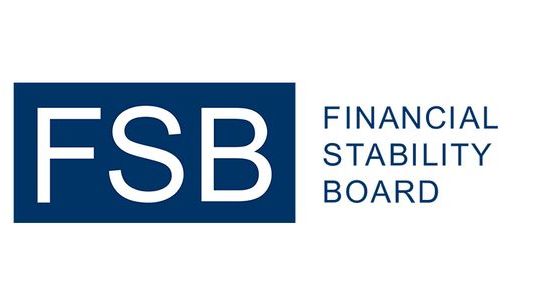Changing with the times
By Graeme Rate, Head of Hedge at SANNE
Published: 25 October 2017
South African hedge fund investment managers as well as investors welcomed change in 2015 when Finance Minister Pravin Gordhan declared that hedge funds would form part of Section 63 of the Collective Investments Schemes Control Act, No. 45 of 13 December 2002 (CISCA). The regulations became effective from 1 April 2015 through the implementation of Board Notice 52, which meant that all portfolios that fell within the definition of a ‘hedge fund’ were to be regulated. Hedge fund managers were given six months to register their Management Company and portfolios with the Financial Services Board (FSB), and were given 12 months from their date of registration to comply with the provisions of the Act.
Looking back prior to 2015
Hedge funds in South Africa were unregulated products primarily structured through either limited liability partnerships or trusts.
The Financial Advisory and Intermediary Services Act (FAIS) No. 37 of 2002 was established to provide a framework for all financial services providers in which to operate. In August 2007, a separate classification was enacted which differentiated the requirements for hedge fund managers from other discretionary portfolio managers. This included the demonstration of specific experience in managing such portfolios as well as the managing of specific assets that may constitute a hedge fund portfolio. This amendment for the first time defined a ‘hedge’ (in the context of a position taken), ‘leverage’, ‘net short position’ as well as a ‘hedge fund’ within South African legislation.
A hedge fund was thus defined as ‘a portfolio which uses any strategy or takes any position which could result in the portfolio incurring losses greater than its aggregate market value at any point in time and which strategies or positions include, but are not limited to, leverage or net short positions’.
From 2007 to 2015 only the investment manager was regulated in terms of the FAIS Act and subsequently to the declaration in February 2015, hedge funds were now regulated under CISCA, along with Collective Investments.
Why the need for regulation?
The FSB’s purpose for the regulations was first and foremost to provide protection to investors. Secondly, it assists in monitoring and managing systemic risk in the industry and thirdly, to promote integrity and transparency in the hedge fund industry.
The structures that are permitted under the Act are either a collective investment scheme trust arrangement or en-commandite partnerships, with the former being the most popular in terms of approved portfolios to date. These structures may house one of two permitted hedge fund types, a Retail Hedge Fund (RHF) or a Qualified Investor Hedge Fund (QIHF).
Regulations for qualified and retail funds
As the name implies, a RHF is permitted to access the retail investor market, whereas a QIHF may only permit investors that are deemed ‘knowledgeable and experienced investors’. The criteria for such qualified investors are those who invest a minimum of ZAR 1,000, 000 (approximately US$ 75,000) and can illustrate that they understand and can assess the risks and rewards of hedge fund investments, or those who have appointed a regulated advisor who has the requisite knowledge and experience to undertake this and to advise the investor.
Overarching principals, legislation and investor protection
Hedge funds are required to limit the liability of an investor to give effect to the principle that an investor will not suffer any loss in excess of the value of their investment in the portfolio.
Other legislated requirements are that the Management Company must appoint either an independent custodian or administrator, manage the liquidity of underlying investments in line with the liquidity profile of the portfolio and may not take delivery of physical commodity positions.
More specific guidance is provided to RHF’s whereby exposure (or VAR), liquidity terms, counterparty exposure and the instruments permitted to be traded are more tightly regulated as opposed to QIHF’s, with the view that investors would be better protected in a more regulated product.
The Act further requires a Management Company to appoint service providers that are approved by the FSB, these include the Prime Broker, Administrator and Trustee. Further requirements require the Management Company to establish and document a valuation and pricing policy, a remuneration and reward policy (in order to align the interests of investors with the manager), have a risk management policy (to provide for the management of operational, business, liquidity and credit counterparty risks), ensure best execution in transacting and to provide detailed performance, risk and expense reporting to both investors as well as the FSB.
Treating customers fairly
Disclosure to investors is paramount and detailed guidelines are provided in the regulations. Marketing and solicitation rules that apply to unit trusts, also apply to hedge funds. All advertising material, application forms, key investor information documents, monthly minimum disclosure documents and quarterly general investor reports must now be provided to investors and submitted to the FSB for review.
Any changes to any terms of the portfolio such as the mandate, is required to be balloted and approved by the majority of investors, providing an additional layer of comfort that the manager cannot unilaterally amend the terms of the investor engagement or the way in which the portfolio is managed.
Marketing of non-South African funds
Bringing hedge funds into the regulated space further provides opportunity for non-South African hedge fund managers to solicit investments from members of the South African public by obtaining authorisation through Section 65 of CISCA. This is dependent on the products offered being of a similar structure and risk profile as to those offered under the CISCA regulations for locally domiciled funds and being approved by the FSB.
For investment managers that either do not have the infrastructure nor the capability to create their own Management Company, regulations permit an established Management Company to offer a platform that host a number of different portfolios which are managed and administered independently of each other. The majority of hedge fund managers have opted to utilise such platforms, with the largest platform hosting 73 portfolios managed by 29 different investment managers.
Yesterday, today and tomorrow
The South African hedge fund market now offers investors a wide suite of regulated products, which are well-regulated, easily investable and offers the ability to protect capital in the event of a market correction. The South African hedge fund industry envisages that changes will lead to increased investor confidence which should translate into increased asset flows and a bright future for South African hedge fund managers.
To contact the author:
Graeme Rate, Head of Hedge at Sanne: [email protected]





